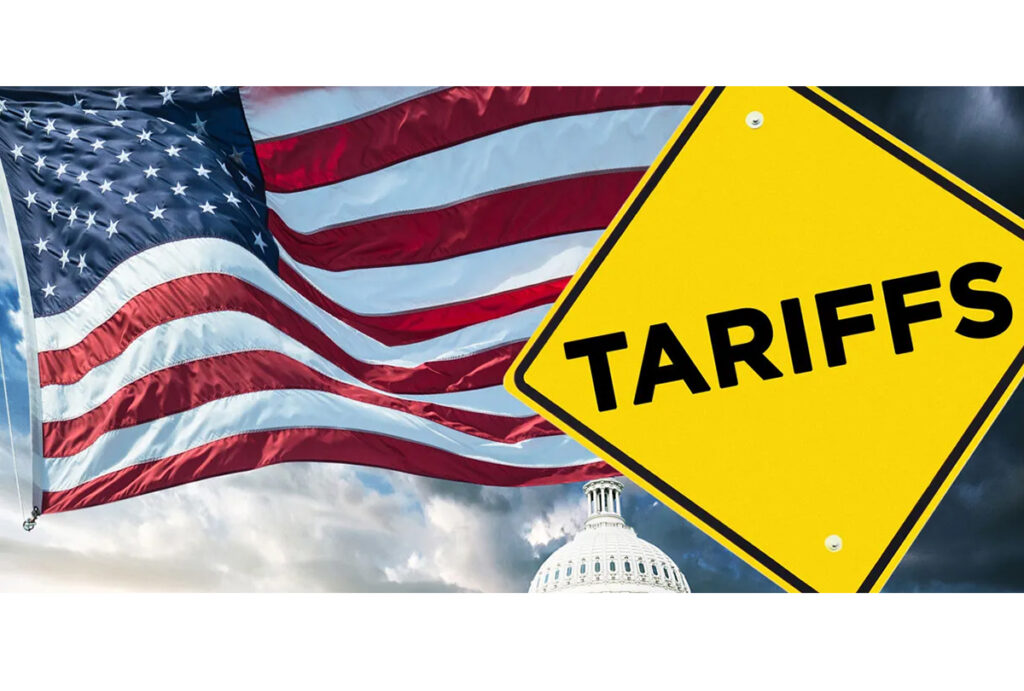By Robert A. Lawson and Matthew D. Mitchell

For a moment on April 9, the average U.S. tariff rate leapt to 32 per cent, making American consumers the highest tariffed people in the world. For the next 90 days, the average U.S. tariff rate will be about 25 per cent, which will leave Americans paying more than the citizens of any other industrialized nation, putting us in the company Sudan and Djibouti.
America, despite what you may have heard, is currently a pretty great place to live and work. While Americans represent just 4.2 per cent of the world’s population, they produce more than 26 per cent of the world’s GDP. As a result, U.S. median income is nearly nine times the global average and the U.S. poverty rate is about one fortieth the global rate. We have our problems. Every country does. But Americans are among the healthiest and wealthiest people to ever walk the planet and are generally quite satisfied with their lives.
But this prosperity didn’t just happen. It was built on a foundation of economic freedom. And by our calculations, that freedom is rapidly eroding thanks to President Trump’s trade war.
Individuals are more economically free when they are allowed to make more of their own economic choices. Governments can protect these choices by impartially safeguarding everyone’s right to own, use, and exchange property. Or they can limit economic choice through taxes, regulations, tariffs, and manipulation of the value of money.
One of us (Lawson) has been measuring economic freedom for nearly three decades. His annual Economic Freedom of the World report, published by the Fraser Institute in Canada and the Cato Institute in the U.S., measures the degree of economic freedom in each of 165 countries using 45 indicators of government policy. Ten of these indicators measure trade freedom, reflecting its importance in overall economic freedom.
Many of us cherish economic freedom for its own sake, believing that each of us has the inalienable right to choose our own vocation, to spend our own resources as we see fit, and to contract with others as we like.
But even if these considerations don’t appeal to you, you should value economic freedom. That’s because—as has been documented in nearly 1,000 peer reviewed studies—it makes life better. Compared with the least-economically free places, people in the freest nations earn 7.6 times as much, live 16 years longer, and are 40 per cent more satisfied with their lives. They also tend to be more literate, more tolerant, and less corrupt.
All of this helps explain why the United States—which last ranked as the fifth-freest economy in the world—is so prosperous. Americans have long been some of the most economically free people on the planet. U.S. trade freedom, the area of economic freedom that gauges our ability to exchange with people in other nations, is a key component of that. It accounts for tariffs, regulatory trade barriers, controls, and black-market exchange rates. U.S. trade freedom peaked in the 1990s at 8th in the world. But as other countries allowed their own citizens to trade more freely, the U.S. failed to keep up and by 2022, it had fallen to 53rd place.
As U.S. tariff rates have gyrated up and down, we have re-run the numbers, estimating the effects on U.S. trade freedom and on U.S. economic freedom more broadly. For the brief time this month when average U.S. tariff rates were 32 per cent, U.S. trade freedom slipped to 72nd place, just behind Haiti, a country that the president has brutally mocked for its poor living conditions.
We also slipped to 10th place in overall economic freedom. Now, with average U.S. tariffs at 25 per cent, U.S. trade freedom has crept back up to 70th place, just ahead of Rwanda while overall economic freedom remains 10th.
America is a great country. But our prosperity depends on our freedom and Trump’s trade war is a clear threat to that.
Share This:




 CDN NEWS |
CDN NEWS |  US NEWS
US NEWS 


























